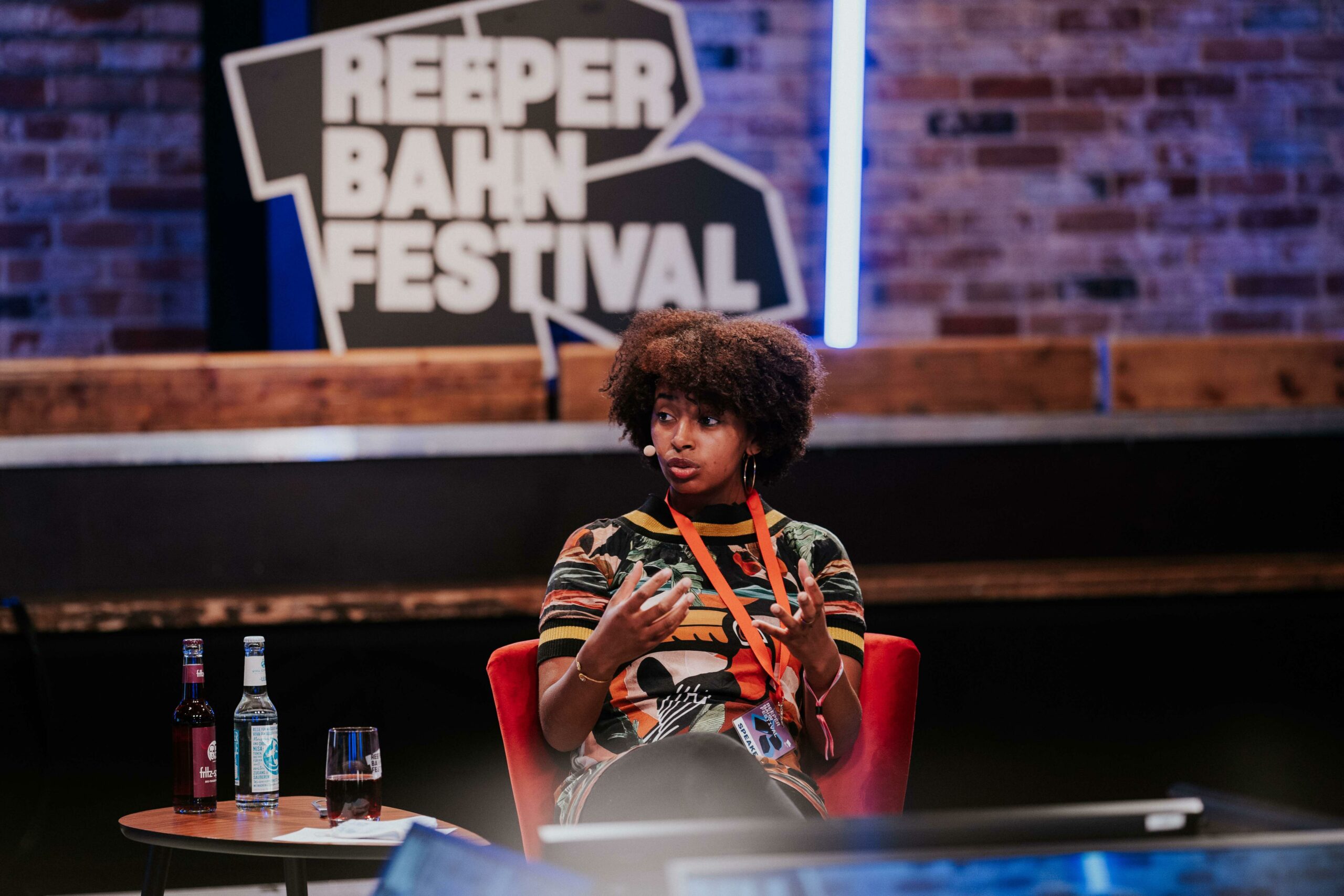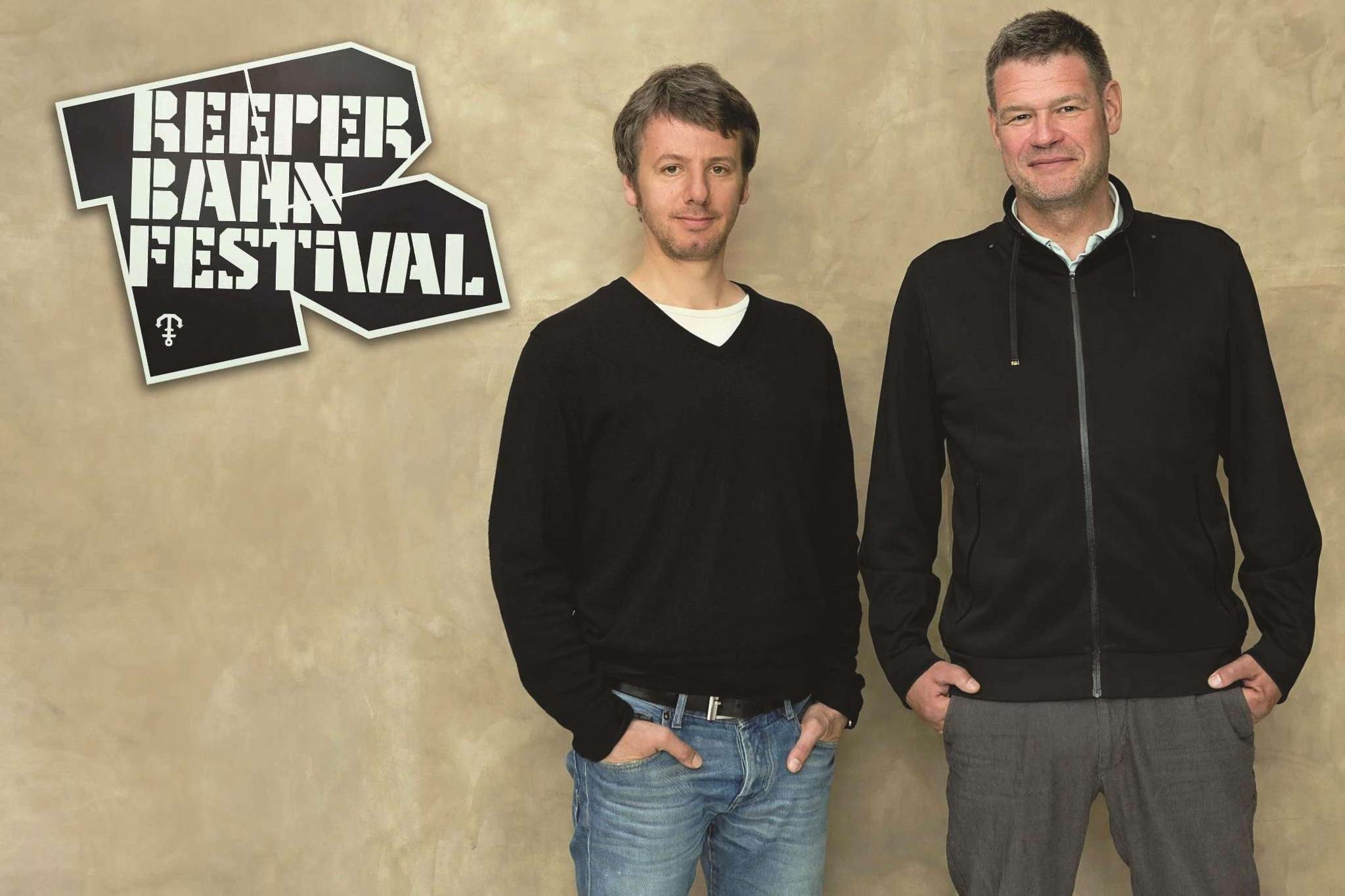Features
‘All Set For The Future’: Reeperbahn Festival Reflects On Historic Hybrid Edition

Robin Schmiedebach – Concert manager Luanny Tiago talking about the project Zukunftsmusik (music of the future).
The sessions were live streamed online.
The organizers of this year’s edition of Reeperbahn Festival are happy with the first hybrid edition in the event’s 15-year history, Sept. 16-19.
The massively reduced offline program attracted some 8,000 visitors to 20 venues, where 140 live concerts, lectures, readings, discussions, films and visual art exhibitions took place over four days.
150,000 visitors followed the freely accessible digital program. Most of the around 100 livestreams of concerts, readings and lectures will remain available after the festival online.
There was also a digital program for international industry delegates, which costs $25 to attend, and was accessed by 1,480 registered participants from 37 countries, who joined more than five sessions each day on average.
Sessions covered a variety of topics from the music business and the film, games and advertising industries. Highlights included panels with industry leaders such as Stephan Thanscheidt (FKP Scorpio) or Helen Smith (IMPALA), a discussion between the editors of German dailies taz and Bild, lectures by bestselling author Kübra Gümüsay and Douglas Rushkoff, as well as a talk with Melanie C., who was on this year’s Anchor Award jury.
This jury, which reforms around mainstay Tony Visconti each year, watched all the nominees’ performances during Reeperbahn Festival, and chose a winner on the final night, during a ceremony at the St. Pauli Theater, hosted by Hadnet Tesfai. This year, ÄTNA convinced the judges with their performance and took home the Anchor Award 2020.
Challenges during Reeperbahn Festival 2020 included artists cancelling at short notice, as some of the territories they traveled from were declared risk areas at the last minute.
However, “the attempt to present concepts for resuming live events, was hailed as a success by audiences, artists, music industry professionals and the authorities,” according to a joint statement from organizers.

Rieka Anschnitt – Reeperbahn Festival
Conference Director Detlef Schwarte (left) and Managing Director Alexander Schulz.
Conference director Detlef Schwarte told Pollstar that he was particularly happy with the way all visitors and artists observed the distance and hygiene rules in place on site. “We sensed great mindfulness and a collective sense of responsibility,” he said.
The almost 1,500 paying delegates who joined the gated online program took almost matched his expectations. “The number of active participants per session was even higher than during the traditional conference,” Schwarte explained. Within the first hour of launching the digital live stream platform, his team experienced a few technical issues with the server, which was “annoying, but I found our overall performance very respectable,” he continued.
He revealed that the digital program offering would only increase going forward, whether restrictions remain in place or not. “We’re all set for the future thanks to the major efforts we put in for this edition,” Schwarte said.
He admitted that there wasn’t one moment that felt normal during the entire conference, “especially with regard to the conference program for our trade audience, nothing was as it used to be. And the distancing and hygiene rules also dictated the proceedings behind the scenes.”
And he concluded, “Reeperbahn Festival has always been a fantastic team effort. This year represented an extraordinary challenge, as we all had to adapt to changing circumstances several times. It was elaborate and sometimes frustrating.
“The fact that the festival was received positively by the audience, artists and all involved eventually, and was able to generate many beautiful moments, is all down to the professional approach of the team.”

Katja Ruge – Akua Naru
One of the artists, who performed live at Reeperbahn Festival 2020.
Akua Naru, one of the artists, who performed live at Reeperbahn Festival, shared insights into her experience. “You know, after so long it was great to be on stage again. So it was really nice to be invited to Reeperbahn Festival. And just to perform before the people.
“I could feel that people were excited to attend a performance even though they couldn’t stand or dance. So we had to find new ways to keep the crowd engaged and I think we did that. So it was different, but it was still interesting.”
Reeperbahn Festival CEO Alexander Schulz commented: “That was a huge feat! Everyone played their part: The team and supporters on a state and federal level over the last four months, and the audience, artists and trade visitors over the last four days.
“The mood was characterized by a collective mixture of mindfulness, joy and gratitude. There was a palpable sense in every moment that we were seeking to show the whole world that live music with an audience and international exchange in the music industry can function safely.”
Prof. Jens Michow, President of the Federal Association of the Concert and Event Industry (BDKV), reminded everyone that the current restrictions would still lead to the collapse of an entire industry, if the political situation didn’t change soon.
“An industry that has grown continuously in recent years without claiming any public funding is now facing ruin as a result of a devastating collapse in revenue and with no prospect of a return to normality,” he said, adding, “The event industry needs substantial support without delay if it is to survive this present situation – otherwise any funds for restarting cultural life will come too late. Thousands of artists, musicians and all the service companies dependent on the event business will lose their livelihoods.”
Prof. Monika Grütters, the federal government’s commissioner for culture and the media, has pledged €150 million of the German government’s cultural rescue fund to the music industry.